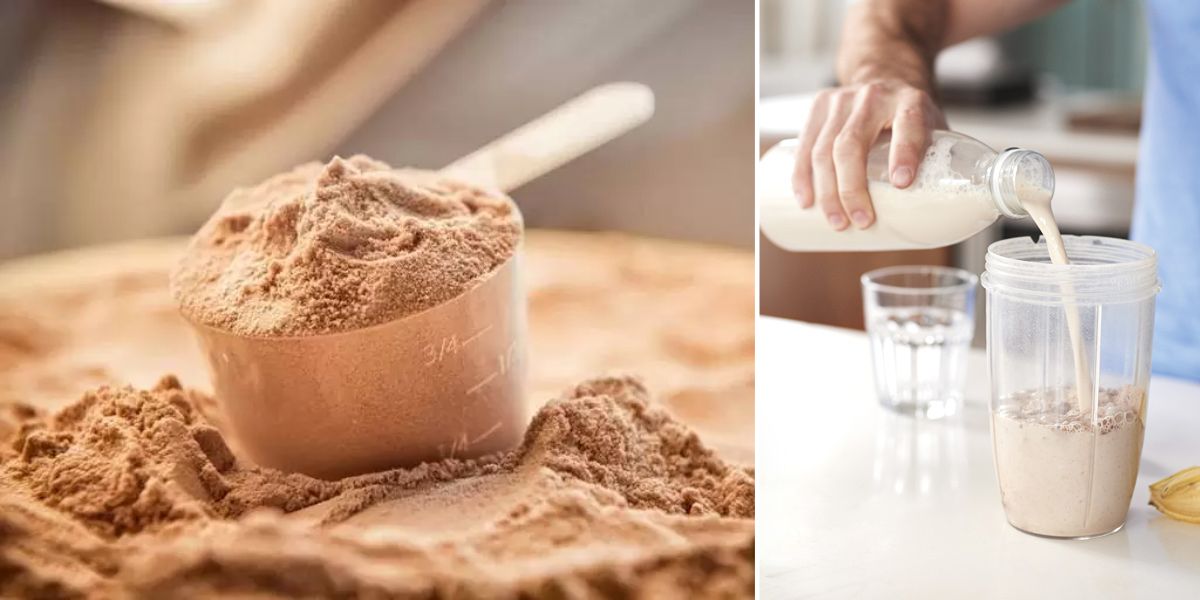Milk Protein Concentrate, commonly known as MPC, is a versatile and nutritionally rich ingredient derived from cow’s milk. As the demand for protein-enriched foods increases globally, MPC has gained prominence for its utility in various dietary and food manufacturing applications. This concentrated form results from an intricate process where milk undergoes ultrafiltration to remove a significant portion of its water and lactose content, leaving behind a highly concentrated protein-rich substance. This process not only enhances the protein content but also preserves the integrity of milk’s natural proteins.
The Production Process

The production of Milk Protein Concentrate is a testament to modern dairy science. It begins with pasteurized skim milk, which is then passed through a series of ultrafiltration membranes. These membranes are designed to separate the milk’s components based on their size, allowing the smaller lactose molecules and minerals to pass through, while retaining the larger protein molecules. What follows is a concentration process where the protein-enriched fraction is either spray-dried into a powder form or further processed depending on the desired protein content, which typically ranges from 40% to 90%.
Nutritional Value of MPC
The nutritional profile of Milk Protein Concentrate is impressive, making it a sought-after ingredient in health and wellness circles. MPC is rich in both casein and whey proteins, which are complete proteins containing all essential amino acids necessary for human health. Its high protein efficiency ratio makes it ideal for muscle repair and growth, crucial for athletes and those engaged in regular physical activities. Furthermore, the low lactose levels make it easier to digest for those with lactose intolerance, providing a comfortable means to increase protein intake without adverse effects.
Applications in Food Industry

Milk Protein Concentrate’s functionality extends beyond nutritional benefits; it is also celebrated for its texturizing, emulsifying, and water-binding properties, which make it a valuable additive in a wide range of food products. From baked goods and snack bars to dairy products and nutritional supplements, MPC enhances texture and consistency, improves shelf life, and can be a protein fortifier. Its versatility also makes it a key ingredient in meal replacements and weight management products, where a high protein content is essential.
Benefits in Sports Nutrition
In the realm of sports nutrition, Milk Protein Concentrate stands out as a powerhouse ingredient. Its balanced ratio of casein and whey proteins provides both fast and slow-digesting proteins, which are ideal for a sustained protein release—important for muscle recovery and growth. This slow and steady amino acid release helps athletes maintain a longer anabolic state, which can aid in reducing muscle breakdown and expedite recovery times after strenuous workouts.
MPC in Weight Management

MPC also plays a significant role in weight management regimes. The high protein content can increase satiety, which helps reduce overall calorie intake by making individuals feel fuller for longer. Integrating MPC into a diet can be a strategic approach to managing weight without sacrificing nutritional needs, especially in diets where maintaining muscle mass while losing fat is crucial.
Dietary Considerations and Adaptability
One of the key features of Milk Protein Concentrate is its adaptability in various dietary plans. It fits well within gluten-free, ketogenic, and other specialized dietary requirements that emphasize high protein and low carbohydrate intake. Its ease of digestibility and low lactose content further enhance its suitability across a broad spectrum of dietary needs, making it a go-to protein source for many individuals with specific dietary restrictions.
Challenges in MPC Production and Quality Assurance

While the benefits of Milk Protein Concentrate are vast, the production process comes with its set of challenges. Ensuring the quality and consistency of MPC involves rigorous control of the ultrafiltration process and subsequent handling. The quality of the raw milk, the efficiency of the filtration system, and the handling and storage of the concentrate all play crucial roles in defining the end product’s quality. Manufacturers must adhere to strict quality assurance protocols to maintain the bioavailability of the proteins and prevent contamination.
Future Prospects and Innovations
Looking ahead, the future of Milk Protein Concentrate is promising, with continuous innovations aimed at improving its functionality and applications. Advances in filtration technology and processing methods are likely to enhance the efficiency and cost-effectiveness of MPC production. Moreover, growing consumer awareness about protein’s health benefits is expected to drive further demand, prompting new applications and incorporation into everyday consumer products.
Conclusion
Milk Protein Concentrate is more than just a dietary supplement; it is a reflection of advanced dairy science that offers substantial benefits across various industries. Its comprehensive nutritional profile, coupled with its functional properties, makes it a staple in food manufacturing and a crucial component of nutritional regimes aiming at health optimization. As research and technology continue to evolve, MPC’s role in food science and nutrition is set to expand, promising exciting possibilities for future developments.
Frequently Asked Questions
1. What is Milk Protein Concentrate made from?
- Milk Protein Concentrate is made from cow’s milk through a process called ultrafiltration that concentrates the protein components while reducing lactose and water content.
2. How does Milk Protein Concentrate benefit athletes?
- It provides both slow and fast-digesting proteins, essential for muscle repair and growth, making it ideal for athletes looking for sustained protein absorption and recovery aid.
3. Can Milk Protein Concentrate help with weight loss?
- Yes, its high protein content can increase satiety, which helps reduce overall calorie intake and supports weight management strategies.
4. Is Milk Protein Concentrate suitable for those with lactose intolerance?
- Yes, it typically contains lower levels of lactose compared to regular milk, making it easier for those with lactose intolerance to digest.
5. What are the main applications of Milk Protein Concentrate in food products?
- MPC is widely used in baking, dairy products, meal replacements, nutritional supplements, and snack bars due to its texturizing, emulsifying, and protein-fortifying properties.








